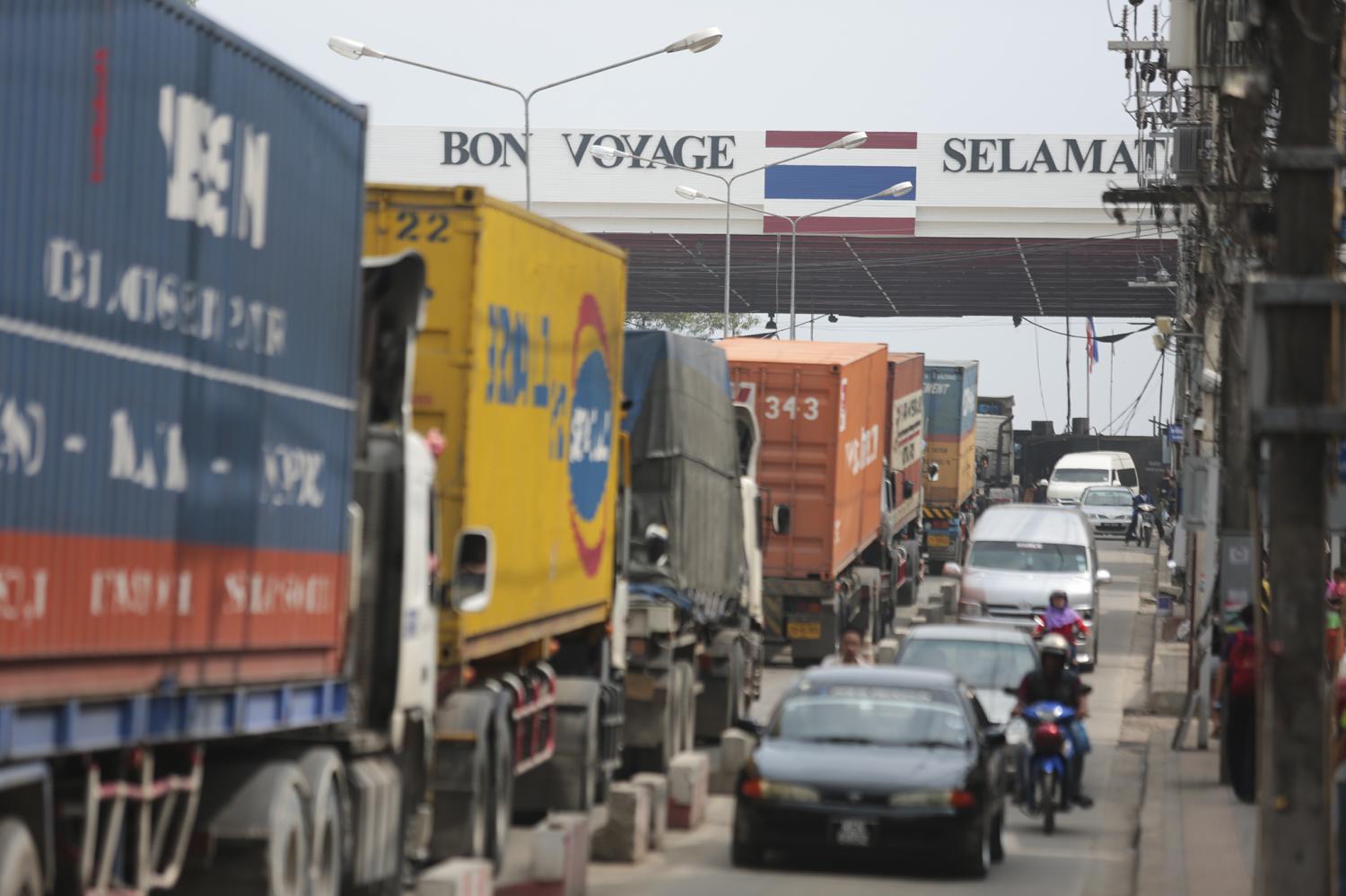
Thailand's cross-border trade dropped 1.94% year-on-year in the first 10 months of this year, with the strong baht, global economic slowdown, continued trade war and an overall volatile foreign exchange listed as the key threats.
On Thursday, the Commerce Ministry's Foreign Trade Department reported the country's overall cross-border trade, including transit trade, amounted to 1.12 trillion baht for the year to October.
Transit trade consists of businesses involved in the passage of goods through more than one country.
Of the total figures, exports from Thailand accounted for 627 billion baht, down 2.05% from the same period last year, while imports were worth 498 billion, resulting in a trade surplus of 129 billion.
Thailand's border trade with all four neighbours amounted to 900 billion baht, down 2.96% from the first 10 months of last year, with exports making up 509 billion, down 5.04%.
Imports were worth 391 billion baht, down 0.11%. Thailand secured a trade surplus worth 119 billion baht with the four neighbours.
Malaysia remained the biggest partner for border trade, with two-way trade amounting to 438 billion baht, followed by Laos (165 billion), Myanmar (164 billion) and Cambodia (133 billion).
The department reported transit trade with Singapore, Vietnam and southern China remained on the rise in the period, totalling 226 billion baht, up 2.34%.
Exports rose by 13.4% to 118 billion baht, while imports dipped 7.56% to 107 billion.
Transit trade to southern China fetched the greatest value at 107 billion baht, followed by Vietnam (56.3 billion) and Singapore (61.1 billion).
Keerati Rushchano, director-general of the department, said border trade dropped with most neighbouring countries.
With Malaysia, he said exports continued to decline, particularly for rubber and rubber products, while shipments to Laos fell, especially for diesel, automobiles and parts.
Border trade with Myanmar managed to rise, but at a slower pace, held back by declines in diesel and alcoholic drinks.
Exports to Cambodia continued rising in the first 10 months, boosted by alcoholic drinks, automobiles and parts.
"The department is committed to proceeding with activities to boost border trade and the border economies," said Mr Keerati.
"In early 2020, the department will hold a border trade expo at the Eastern Economic Corridor and in southern Thailand."
Despite a spate of risk factors, especially global economic uncertainties, the trade row between China and the US, and the strengthening baht, the department said it remains committed to driving overall trade to 15% growth, worth 1.6 trillion baht, this year.